Posted on 4/18/2025

Extreme Auto Repair is proud to announce our expansion into Centennial, CO, bringing the same trusted service our customers have known in Parker to a brand-new location. If you've relied on our team for years—or if you're just discovering us for the first time—you can expect the same transparency, expertise, and dedication to quality at this second shop. We’ve always believed that auto repair should be honest, straightforward, and centered around the customer. Now, with two convenient locations, it’s easier than ever to get the expert care your vehicle needs—whether you’re commuting across town or heading into the mountains for the weekend. Everything You Love About Our Parker Shop—Now in Centennial Our new Centennial location is equipped to handle the full range of services on which we’ve built our name. From oil changes and alignments to full engine diagnostics and transmission work, this location mirrors the ... read more
Posted on 3/28/2025
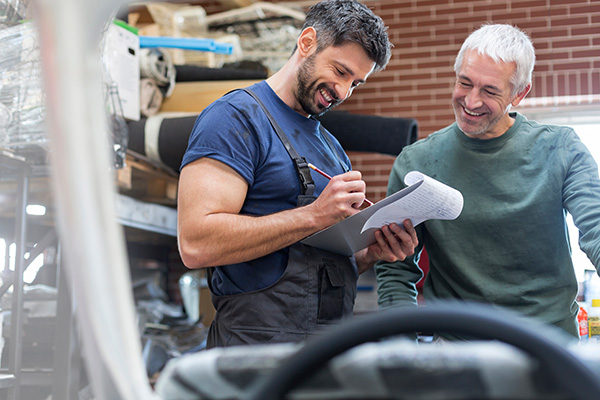
Car repairs can be stressful, but the last thing you want is to feel like you're being taken advantage of. Whether it's a routine service or a major fix, trust is key when working with an auto shop. But how can you tell if you're getting a fair price or paying way more than necessary? Some shops push unnecessary repairs, overcharge for labor, or mark up parts beyond a reasonable amount. If something doesn’t feel right about your estimate, it may be time to consider a second opinion. Warning Signs of Overcharging Not all high repair bills are a sign of dishonesty. Some services genuinely cost more due to the complexity of the job or the price of parts. However, there are certain red flags that could indicate you’re paying too much. A big one is a vague or confusing estimate. A reputable shop will break down the cost of parts, labor, and any additional fees. If you’re handed a total without a clear explanation, that’s a sign to ask ... read more
Posted on 2/10/2025
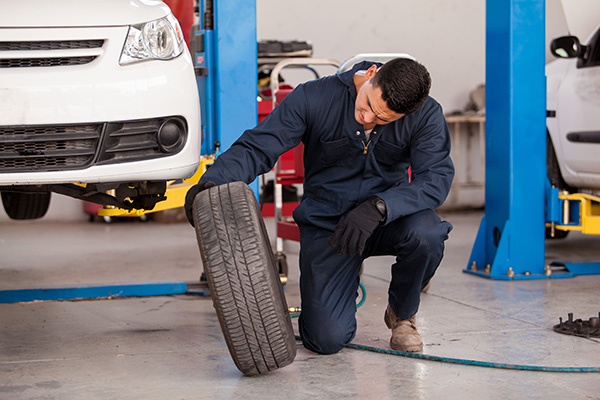
Your tires are the only part of your vehicle that makes direct contact with the road, which means they play a crucial role in safety, handling, and fuel efficiency. Yet, many drivers don’t think about their tires until there’s a visible issue or a flat. Driving on worn-out or damaged tires can increase the risk of blowouts, poor traction, and longer stopping distances, especially in rain or snow. So, how do you know when it’s time for new tires? There are a few key signs that indicate it’s time to replace them before they become a safety hazard. Tread Wear One of the most common ways to tell if your tires need replacing is by checking the tread depth. The tread provides grip, helping your car maintain control in wet, icy, or uneven road conditions. As tires wear down, they lose this grip, making it harder to stop, turn, or maintain stability. A simple way to check your tire tread is the penny test: Insert a penny into the tread groove with ... read more
Posted on 1/17/2025
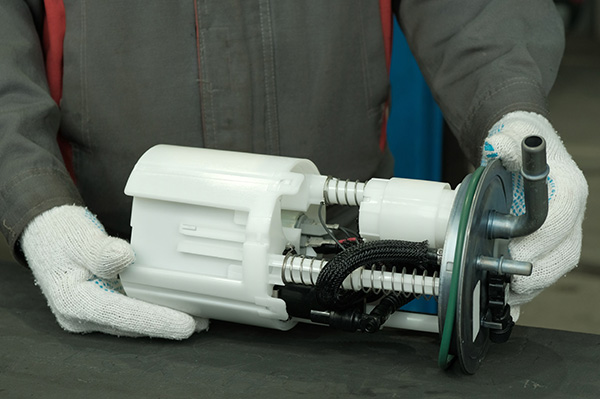
Your car’s fuel pump keeps your engine running by delivering the right amount of fuel at the right pressure. When the fuel pump fails, your car’s performance suffers, and you might even find yourself stranded. Curious about what causes fuel pump damage and how you can avoid it? Let’s explore the main culprits and some practical tips to keep your fuel system in top shape. 1. Running on Low Fuel Too Often One of the most common reasons for fuel pump damage is consistently driving with a near-empty gas tank. The fuel in your tank acts as a coolant for the pump. When the fuel level gets too low, the pump isn’t properly cooled, causing it to overheat and wear out prematurely. Prevent this by keeping your gas tank at least a quarter full at all times. This will not only extend the life of your fuel pump but also reduce the risk of debris collecting at the bottom of the tank, which can clog the pump and fuel filter. 2. Using Contaminated or ... read more
Posted on 12/11/2024
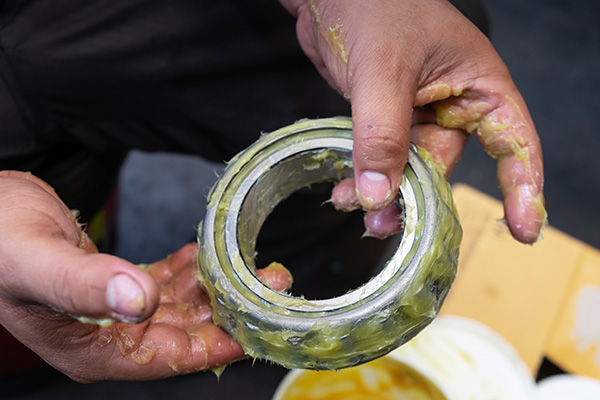
A bad wheel bearing might seem like a minor inconvenience at first—a faint humming or grinding sound coming from your wheel. But is it really something you can ignore? While it’s easy to brush off odd noises, driving with a faulty wheel bearing is a gamble that can lead to severe damage and safety risks. We'll explain what wheel bearings do, the signs of trouble, and the potential dangers of ignoring the problem. What Exactly Is a Wheel Bearing At its core, a wheel bearing is a small but critical component located at the hub of your wheel. Its job? To allow your wheel to rotate while supporting the vehicle’s weight. This part consists of steel balls or rollers encased in a metal ring, lubricated to reduce friction. Since they’re designed to handle heavy loads and high speeds, wheel bearings are built tough. But they’re not invincible. Over time, wear and tear, poor road conditions, and even moisture can take a toll, leading to damag ... read more
Posted on 10/31/2024
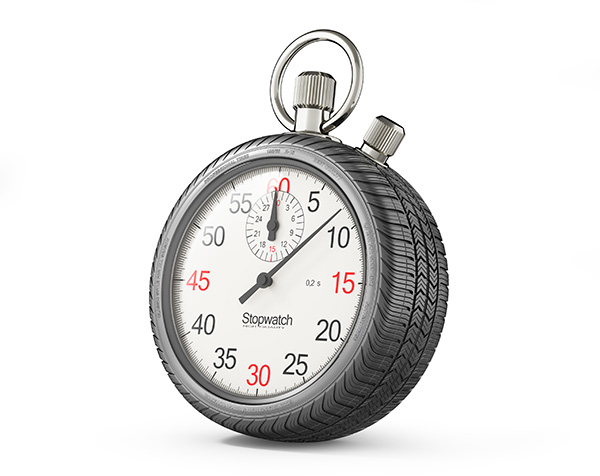
When it comes to car repairs, there’s one factor that always seems hard to pin down: timing. You might schedule an 8 a.m. appointment, expecting to have your car back by noon, only to find yourself waiting longer than anticipated. Frustrating? But there’s more to this time challenge than meets the eye. A car repair timeline isn’t always easy to predict, and various factors can throw even the best-laid plans off course. Understanding why timing in automotive repair is elusive can make those waits easier to bear and remind us that the work quality is worth every minute. Why Are Repairs Often Delayed Several reasons explain why a straightforward repair can suddenly take longer than expected. While you may be prepared for a routine oil change or tire rotation, unexpected issues can arise once a technician inspects the vehicle. A seemingly minor problem can quickly evolve into something more complicated when parts show signs of wear or underlying damaged ... read more
Posted on 10/10/2024
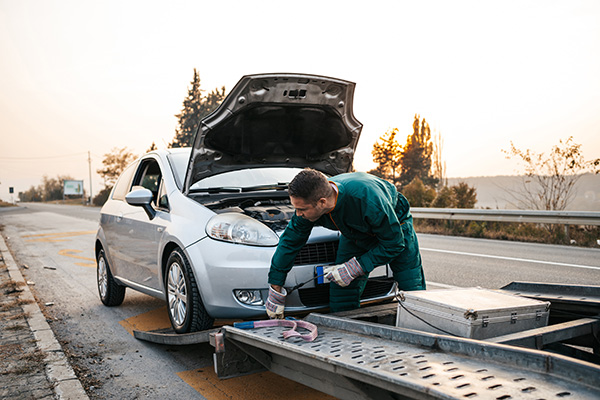
Driving a car that isn’t functioning properly can be nerve-wracking, but knowing when your vehicle has crossed the line from “needs service” to “needs a tow” is important for your safety. Whether it's strange noise, warning lights or handling issues, certain signs indicate that your car is no longer safe to drive. Ignoring these red flags can lead to more expensive repairs or even put you in dangerous situations on the road. So, how do you know when to call for a tow rather than drive to the nearest repair shop? Warning Lights You Shouldn’t Ignore Modern vehicles are equipped with dashboard warning lights designed to alert you to potential problems. While some lights, like the low fuel indicator, are not urgent, others are critical to your car’s safety and performance. The check engine light is one of the most common warning signs, and while it doesn't always mean your car is about to break down, it’s important ... read more
Posted on 9/8/2024
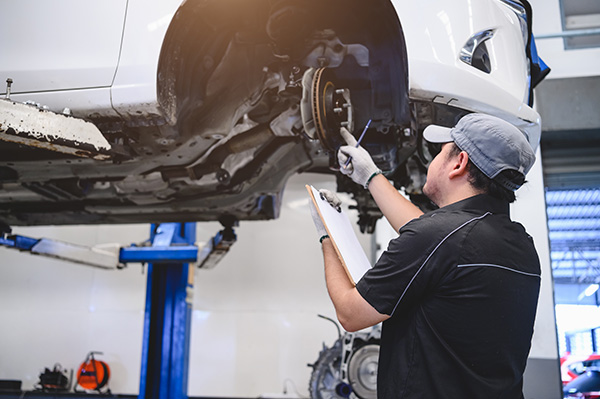
Have you noticed a high-pitched squealing noise when you apply the brakes? This is a common issue, and while it might be annoying, it’s also a sign that something’s up with your braking system. The squeal could be harmless in some cases, but it could indicate a more serious problem that needs attention in others. So, why exactly do brakes make that noise, and when should you be concerned? Worn Brake Pads One of the most frequent reasons for brake squealing is worn-out brake pads. Brake pads are designed with a wear indicator, a small metal tab that rubs against the brake rotor when the pad material is low. This contact creates that unmistakable squealing sound, acting as an alert that it's time to replace your brake pads. Ignoring this noise can lead to more severe damage, as the brake pad could wear down to the metal backing, causing damage to the rotors. If you hear consistent squealing when you brake, it’s best to get your pads checked befor ... read more
Posted on 8/7/2024
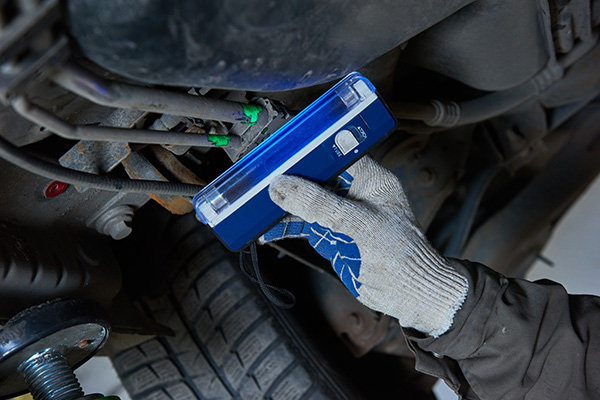
Ever turned on your car's air conditioning on a sweltering day only to feel warm air blowing from the vents? It's a frustrating situation that many drivers face, often caused by leaks in the air conditioning (A/C) system. But what leads to these leaks? Understanding the common causes can help you prevent issues and keep your car cool during the hottest months. The Role of Refrigerant in Car A/C Systems Your car's A/C system relies on refrigerant to cool the air that flows into the cabin. This refrigerant circulates through various components, including the compressor, condenser, evaporator, and numerous hoses and seals. Over time, any part of this intricate system can develop leaks, resulting in a decline in cooling performance. Wear and Tear of Rubber Components One of the primary culprits behind A/C system leaks is the gradual wear and t ... read more
Posted on 7/4/2024
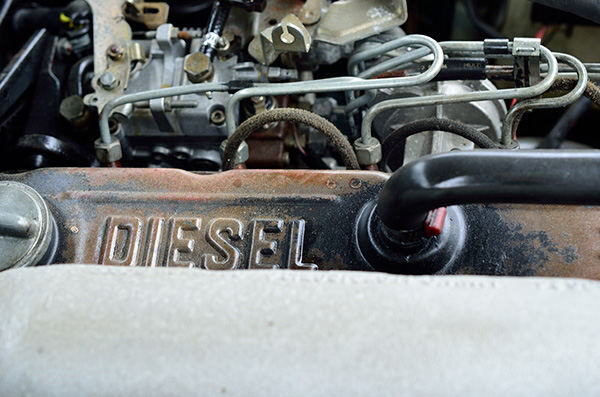
When it comes to maintaining and repairing your truck, the technician's expertise is crucial. Diesel engines are complex, and not just any technician will do. You need someone who is highly skilled and knowledgeable. Let's discuss why choosing a certified diesel technician for your truck is a decision you won't regret. The Value of Certification When your truck needs service, you want to ensure it's in the best hands possible. Certified diesel technicians bring a level of expertise and reliability that non-certified mechanics simply can't match. From understanding the intricacies of diesel engines to keeping up with the latest advancements, these professionals are equipped to handle all your truck's needs. So, why should you choose a certified diesel technician? 1. Specialized Knowledge and Training Certified diesel technicians undergo rigorous training and education. They are well-versed in the complexities of diesel ... read more